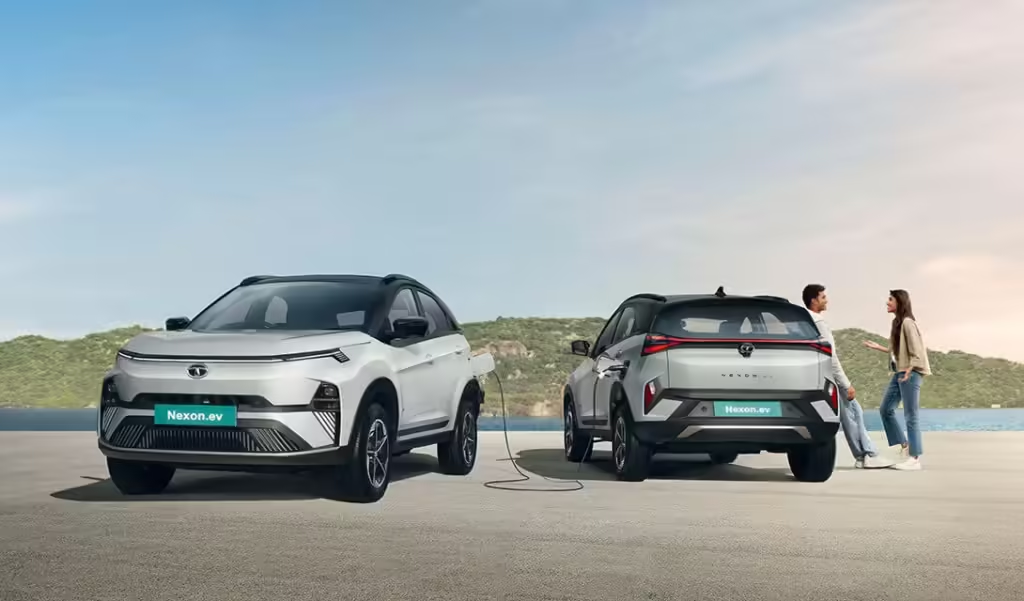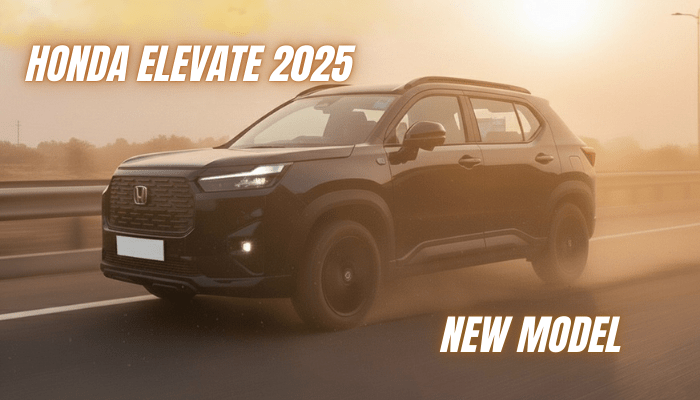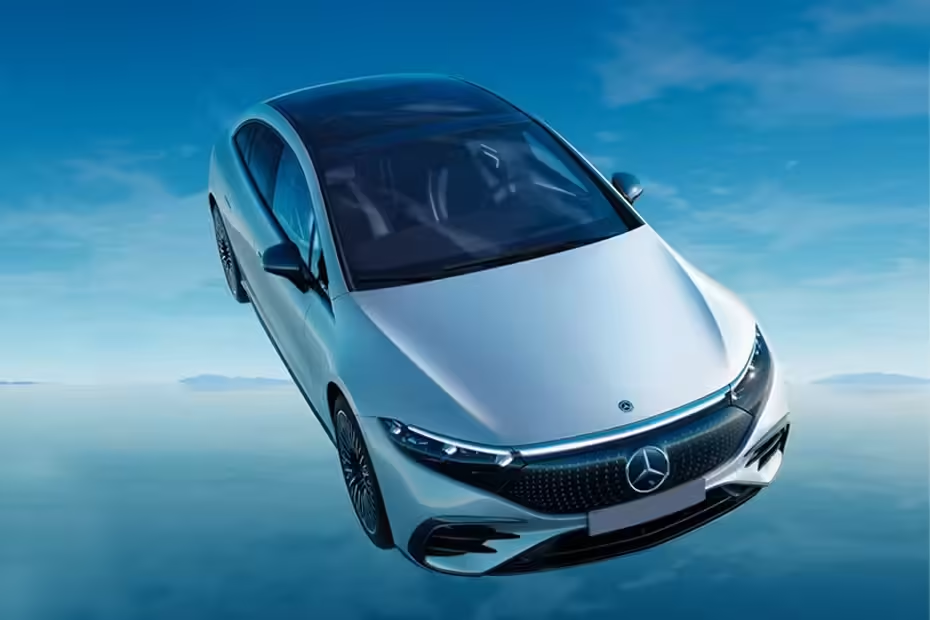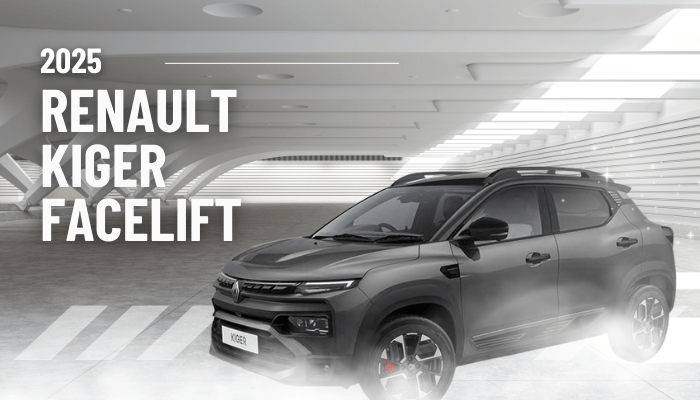As India is set on the path of sustainable mobility, electric vehicles (EVs) are set to become one of the main factors in controlling emissions and improving the quality of transport in cities. As the government’s support for electric vehicles increases and as technology progresses, many are turning to EV cars. But is it the right time for buying an EV car in India? This guide will also look at factors that one needs to look at and some of the best electric vehicles in the market today as a way of assisting the consumer in making the right choice.
The EV Landscape in India
The automotive industry in the Indian market is going through a phase change due to environmental and technological factors. The adoption of EVs is becoming more viable and attractive due to several factors:
1. Government Initiatives:
- FAME India Scheme: The Faster Adoption and Manufacturing of Hybrid and Electric Vehicles (FAME) scheme comprises incentives on buying EV cars which reduces their cost.
- State Incentives: The various state governments offer other incentives including tax incentives, low registration charges and exclusive provisions of parking space without charges for some vehicles.
2. Technological Advancements:
- Battery Technology: The advancement of battery power has extended the range and efficiency of the EV cars and hence can be used in daily life.
- Charging Solutions: One of the most significant sources of anxiety regarding the owning an electric vehicle is replacement of vehicle accessories or upgrade costs normally zone, three key barriers have been cited and the emergence of fast-charging infrastructure is solving one of them.
Key Considerations Before Buying an EVs
1. Charging Infrastructure
- Urban Areas: Delhi-Mumbai Bangalore and Hyderabad are the most significant cities witnessing an expansion of the public charging infrastructure network. This makes it easy for the residents of the city to own and use an EV.
- Rural and Semi-Urban Areas: However, in the regions that are still considered less developed, there is a lack of stations to charge the batteries. Potential customers in these zones need to assess the possibility of obtaining access to electric charging facilities or think about installing their charging equipment at home.
- Installation Requirements: The installation of home charging points is a feasible approach that can be implemented by many EVs users. Promise with the wiring of your home to see if they will allow the installation of a charging unit and check on your model if you have home charge convenience.
2. Driving Range and Charging Time
- Daily Commutes: Long ranges: most new generation of EVs has the ability to travel the usual distances people uses for their daily activities and trips. For instance, the Tata Nexon EV has a battery range of up to 315 km actually that is sufficient for most daily city travel.
- Long-Distance Travel: If you mostly drive long distance, then an EV with high battery range should be preferred. Long-distance vehicles such as Hyundai Kona Electric have a range of 452 km, which makes them better suited for longer drives.
- Home Charging: Most of the time charging at home can take longer compared to charging at public stations. For instance, the MG ZS EV charge time takes about 6-8 hours when fully charged with a standard home charger.
- Public Fast Charging: There is a cut down of charging time based on the use of fast chargers. For instance, the Audi e-tron which is an electric car model can cover up to 80% battery charge in a duration of 30 minutes if charging at a fast charger.
3. Cost and Financial Considerations
- Pricing Variations: In most cases, EVs are relatively expensive than their standard counterparts in the market. But, the literal costs can be reduced by direct subsidization by the government. For instance, Tata Motors has the Tata Tigor as the entry level EV with lower prices than some of the already established brands.
- Running Costs: Comparatively, running costs of EVs are comparatively lower because of lower fuel cost and the number of services that EV needs for effective operation. This is a great benefit since over time, the fuel cost and maintenance will be less hence improving cash flow.
4. Technological Features and Battery Life
- Durability: Check the battery warranty and expected lifespan. Most EV manufacturers offer warranties that cover the battery for several years. For example, the BMW i4 comes with an 8-year warranty on the battery, ensuring long-term reliability.
- Technology: Modern cars designs have several features such as the regenerative braking system, smart connectivity, and driver assistance. For example, the Mercedes EQC is equipped with a sophisticated infotainment system and sophisticated driver assistance.
5. Resale Value
- Depreciation Rates: As the EV market matures, resale values can vary. Research the anticipated depreciation rates and consider how the EV’s value might change over time. Models from established brands like Tesla generally retain their value well due to their advanced technology and performance.
Benefits of Owning an EV in India
- Reduced Emissions: EVs cause no direct exhaust emissions and this can significantly decrease air pollution, especially in urban areas. The joy of driving an electric car is that you are effectively reducing your emission to the atmosphere and thus making the world a better place to live in.
- Lower Running Costs: Electricity as a source is cheaper than fuel, petrol or diesel and EVs have comparatively lesser number of parts that move. There is no need for the frequent changing of the oil, and with regenerative braking, some parts, including the brake system, are expected to last longer, making the vehicles cheaper to operate in the long run.
- Government Incentives: The Indian government provides the availability of subsidies, low service charges on the registration, and tax incentives for the purchase of EVs. These incentives aid in cost recovery since the initial costs of adopting an EV is relatively high which makes it a wise economical move to switch to an EV.
- Quieter and Smoother Drive: Electrification is a lot quieter, and the driving feel and manner are smooth due to the immediate torque delivery. There are no vibrations and noisy sounds coming from the engine which enhance comfort and joy while driving.
- Technological Advancements: Some of the additional benefits include regenerative braking system, sophisticated infotainment systems and advanced driver assistance systems over traditional ICE vehicles providing a novel, safer and more comfortable riding.
- Energy Independence: When charged at home, then you will shift a long way in your efforts to shift away from the petrol stations. Many owners of these vehicles also recharge theirs using solar hence making it more environmental-progressive and pocket-friendly.
- Long-Term Savings: They acknowledge that an EV is more expensive than a traditional car initially but is cheaper since one saves on fuel, maintenance, and through the incentives that are offered by the government. It is very important to understand that the adoption of EVs is a long term investment that is useful in the future.
Examples of Leading EV Models in India
In regard to EV’s the Indian market is still emerging but currently has several solid options from both domestic and foreign car manufacturers. Here are some of the top EV models available in India, each offering a unique blend of features, performance, and value for potential buyers:
1. Tata Nexon EV
The Tata Nexon EV is presently among the favorite electric SUVs in India since it provides significant value for the cost to the consumer. It has an impressive battery capacity that can go up to 315 kilometers on a single charge and is suited for day-to-day use or city traffic.
The Nexon EV also comes with amenities that are current in today’s market including a 7-inch touchscreen of Infotainment system, Smartphone integration, and Connected car Technology offering real time vehicle information. Due to its relatively lower cost, and backed by Tata’s reliable after-sales service support, Tigor EV could be a good starting point for anyone seeking to own an EV.
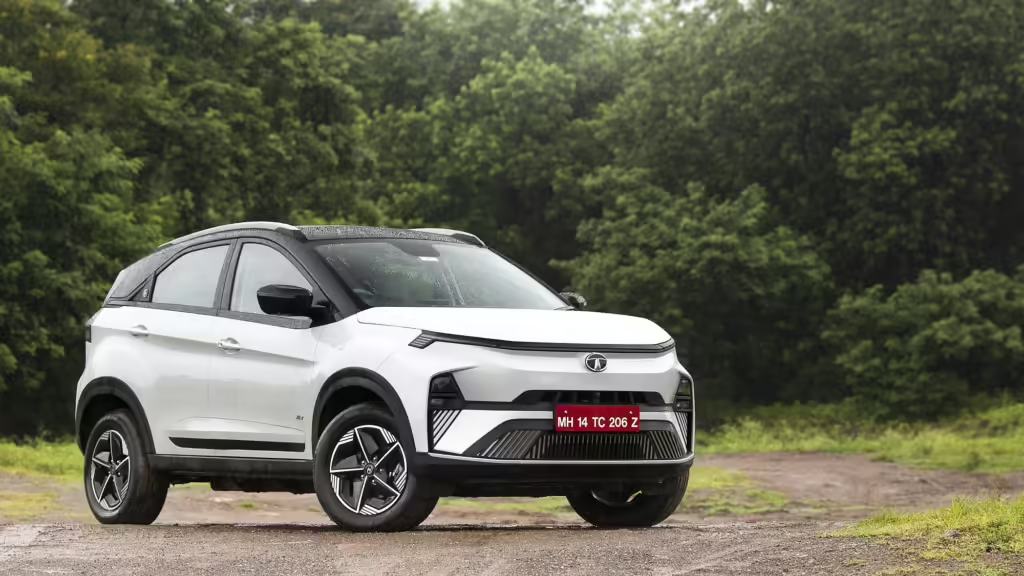
2. Hyundai Kona Electric
Hyundai Kona Electric’s has a mileage capacity of up to 452 km which is very useful for urban trips as well as road trips. The Kona is equipped with features such as digital cluster, wireless charging for phones and drive modes that improves efficiency and power.
It also includes fast charging and can get to 80% of battery charge in under an hour. This is particularly true for buyers who need a luxury end compact SUV with long range demand and electric vehicle desire.

3. MG ZS EV
The vehicle is stylish and functional and convenient while providing a great driving experience. It has a range of roughly 419 km which makes it perfect for a driver who is using his car in the city and does need to make occasional road trips that do not exceed a few hundred kilometers.
The ZS EV comes with the following features; a panoramic sunroof, and a 10.1-inch touchscreen and MG’s i-SMART technology; a voice command system and a remote vehicle monitoring interface. Additionally, it supports fast charging, allowing for a quick recharge when needed. Its combination of features and reasonable pricing makes the MG ZS EV an attractive option for families and urban drivers.

4. Audi e-tron
The Audi e-tron is the brand’s luxury electric SUV that offers high performance on the road through the integration of advanced technology into the vehicle. Available in a range of about 400 kilometers, the e-tron is aimed at the comfortable and sporty segment clients. The car has dual electric motors giving it incredible pick-up, it boasts of a well-built interior, talked about trims, virtual cockpit and also an advanced infotainment system referred to as the new ‘MMI’.
For powering, there is also the fast-charging feature which can make the e-tron regain up to 80 percent of the charge in a half an hour. Considering the target customer of luxury EV buyers, the e-tron is not disappointed in the looks or the performance.

5. Mercedes-Benz EQC
The Mercedes-Benz EQC is the all- new, first luxury battery electric vehicle in the Indian market which has a range of approximately 400 kilometers. The EQC also has great appearance, comfortable ride quality and new technologies such as the voice activated MBUX with artificial intelligence.
It also has a regenerative braking system and flexibility of modes so as to enhance the fuel efficiency. Thus, the interior of the car and the overall construction quality is high to meet the purchasers whose main desire is to buy an EV without sacrificing comfort and additional options.
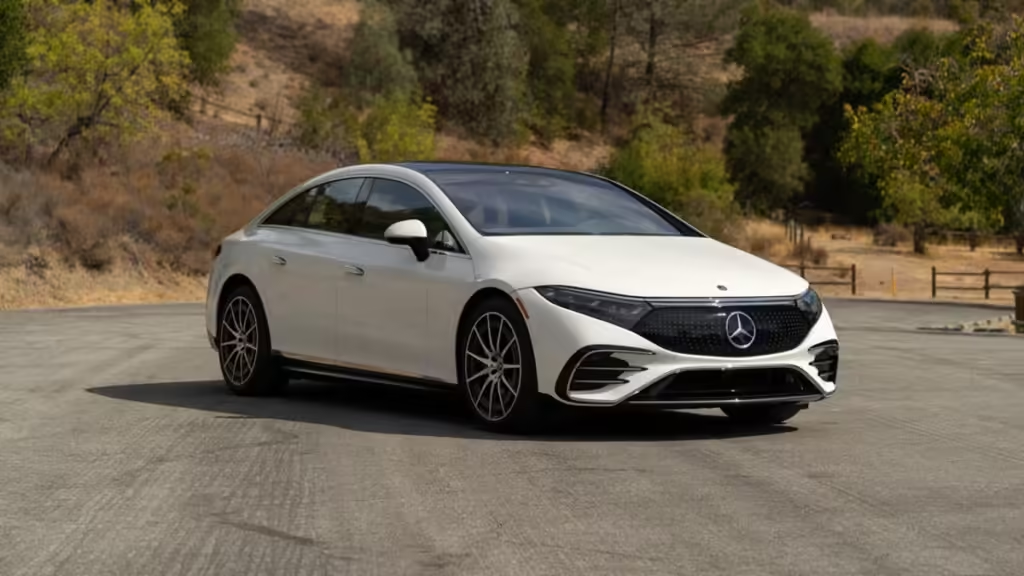
6. BMW i4
The BMW i4 is a luxurious electric vehicle that is said to cater for consumers who have passion for wishy-washy driving and have a range to cover. With a range of up to 590 km, the i4 is one of the long-range EVs that are currently in the market in India.
The vehicle sports handling that is exciting and coupled with the BMW brand’s luxury and tech, this vehicle is a joy to drive. The i4 has an advanced technology package, the latest infotainment system, ample interior room, adaptive cruise control, and lane-keeping help. In a desire to get a high-performance electric sedan, the BMW i4 will do well.

The above choices are some of the finest EV cars currently being sold in India with each brand addressing various segments of consumers. Irrespective of the type of car individuals have been looking for whether it is within the city car, a premium SUV or a high performance sedan the market has had a lot to offer especially since the production of electric cars has grown popular in India.
Conclusion
The decision to go for an EV car for instance in India depends on key characteristics like charging period, distance without having to charge, cost and technological innovations within this newly formed industry. Due to these incentives implemented by the government, technological developments as well as availability of charging points, it is now possible and more desirable to own an EV.
Thus, one can assess own driving requirements, consider the opportunities to charge an EV, and factors of the expenses to make the right decision regarding the implementation of an electric vehicle. Thus, as the market shifts over time, it is logical to assume that EVs constitute a viable roadmap to the future focused on sustainability and greater efficiency in relation to automotive transport.
Ready to Make the Shift to an EV Car?
At My Car Wisdom, we help you stay informed and make the best car-buying decisions with in-depth reviews, expert insights, and the latest trends in the automotive industry. If you’re considering an electric vehicle, now might be the perfect time to explore the future of driving.
Stay tuned for more updates and reviews of the top EV models in India. And if you’re a fan of high-performance SUVs, check out our Lamborghini Urus review to see how luxury meets power in one of the most exciting SUVs on the market.
Explore more with My Car Wisdom—your trusted source for all things cars!
Raja Yadav, the content writer at My Car Wisdom, brings a unique voice and style to our blog. With a knack for storytelling and a keen eye for detail, Raja ensures that every piece of content is informative, engaging, and easy to understand. His focus is on delivering high-quality articles that cater to both novice car owners and seasoned automotive enthusiasts.

